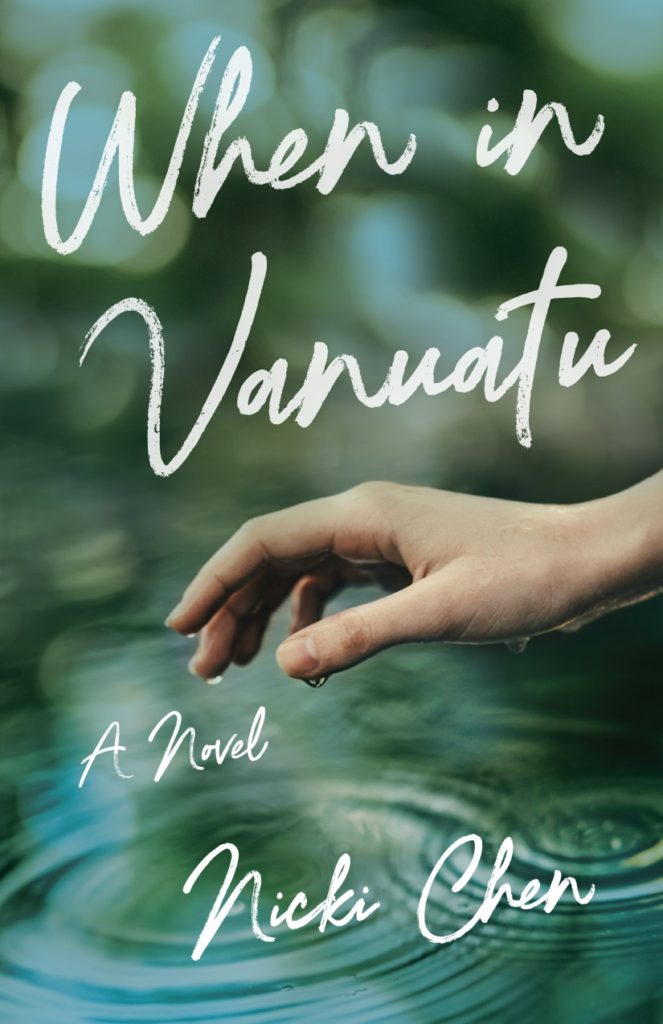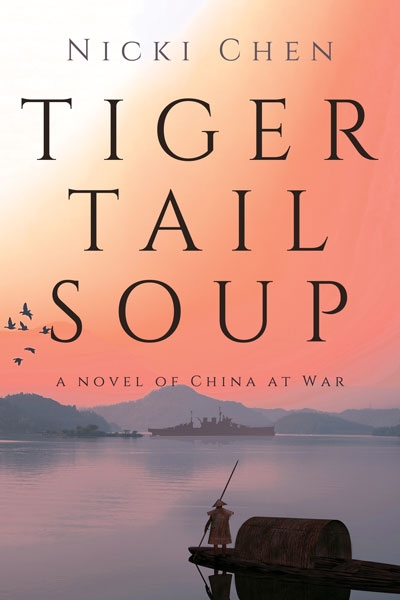
The something new I’m talking about is something that’s more than a simple fact I can google. No. It’s something really big … like marrying a guy from China. I figured I needed a book for that.
I suppose there could have been other ways to respond to my lack of in-depth knowledge and understanding of my husband’s homeland. But being a bookish person, I turned to books.
Books about China
I did know something about China, of course. Hadn’t I read Pearl Buck’s novels? But China is a big, ancient country with a complex history and culture. I needed to know more.
I needed lots of books.
I started with the three delightful autobiographies of Han Su Yin. When our first daughter was born, I was working my way through them. (Obviously, I’d taken time to read Dr. Spock before she was born.)

Eventually, I got around to reading the Chinese classics:
- Dream of the Red Chamber, the famous eighteenth-century novel
- Water Margin (aka Outlaws of the Marsh) This ancient set of stories about lovable and brave outlaws and rebels and some bad guys was my favorite.
- Romance of the Three Kingdoms (the Shakespeare of China) Very long (4 books), war, war, war. I can’t believe I finished it. What we won’t do for the ones we love! There were many good parts, though. My favorite character was Zhuge Liang, a great strategist.
Since then, I’ve read more China-themed books than I can count.
Vanuatu
Before we moved to Vanuatu, I did know it was in the South Pacific, but I thought the inhabitants were Polynesian. (They’re not. They’re Melanesian.) I had a lot to learn, but there weren’t many books about the country. On the other hand, did you know that James Michener’s first book, Tales of the South Pacific was written about Vanuatu when he was stationed there during WWII? It wasn’t his best book, but they wrote a Broadway musical and movie about it: South Pacific.

Other books: Jack London, W. Somerset Maugham, and Robert Louis Stevensen wrote stories about the South Pacific, sometimes including Vanuatu.
COVID
Talk about unpredictable occurrences. We all learned about COVID in bits and pieces from the news and from other people. Still, I needed a book—one that hadn’t yet been written. So, I settled for The Great Influenza by John M. Barry, a book about the 1918 pandemic. It was fascinating and a good model for what we were about to face.

Russia’s 2022 Invasion of Ukraine
I didn’t pay much attention when Russia invaded in 1914, but this full-scale invasion couldn’t be ignored.
And again, I noticed a big hole in my knowledge. Why, I wondered, did I know so much more about Western Europe and its history than about Eastern Europe?
I started this time not with a book, but with Timothy Snyder’s Yale lectures on the history of Ukraine. They’re excellent! You can find them on YouTube or listen to them as a podcast.

Then I read The Gates of Europe, a History of Ukraine by Serhii Plokhy, the professor of Ukrainian History at Harvard. The Financial Times calls it “an assured and authoritative survey that spans ancient Greek times to the present day.” The war continues, and I keep reading. My kindle shows I’ve read six more books about Ukraine.
When something new comes into your life, do you look for a book?



I’m so glad I found your post. It’s fascinating (and the photo at top of you and your husband and baby is just adorable). I think reading about a subject is just plain smart. It’s the best way to be prepared and to understand something different, perhaps, or unexpected, in our lives. And it helps us figure out what the heck is going on in the world (as with your Ukraine reading). I’m impressed. I’m more apt to read historical fiction, though, instead of non-fiction. Keeps my interest up while also learning a lot about a subject or a country or a time in the past. I recently read AS BRIGHT AS HEAVEN by Susan Meissner, historical fiction, about the plague in 1918+. Learned so much.
If a fiction writer does his/her research, you can learn as much or more about the topic. Ukraine has such a complex history that I felt I needed both fiction and non-fiction to even begin to understand. I looked up As Bright As Heaven, published 2018 because I’d read that no one write about that pandemic for a long time. I guess it was too personally painful.
HA! “I figured I needed a book for that.” GREAT advice!
I think running toward knowledge is always the right way to go. I have too many books to count.
My bookshelves are full, but in the past few years I’ve been using Kindle. It’s easier to hold in bed.
I do tend to turn to books for information, and I also read fiction as it can give me a sense of place, because research can be a tad sterile. Himself does not approve as he’s non-fiction all the way, but I’ve learned too much from fiction (and get to enjoy it while I learn) so I’ll continue.
It’s been a long time since I read Mitchener’s Tales of South Pacific and I agree, it really wasn’t his best by a long shot. I have a couple of his books on my shelves – tatty from so many re-reads – Chesapeake & Centennial. Highly recommend them if you’ve not read them.
You do need both fiction and nonfiction to understand lots of things. Fiction gives you a sense of the people, how they interact, and what they care about that a history book won’t. Of course, you can get some of that from movies too. Besides, fiction is fun.
I read Chesapeake and Centennial a long time ago. Now that my daughter lives in Maryland, I should read Chesapeake again. I also loved Hawaii.
It depends. Certainly if I was marrying someone from or moving to another county . . .
For CoVid & the invasion of Ukraine, I did some reading, but not an entire book on either.
I’m think I’m one of the very few who cared to read a book about COVID. I’ve really enjoyed reading both fiction and nonfiction about Ukraine, its fascinating history and its strong and varied people.
I’ll definitely read books for research, especially for history. If I’m working on a book, I’ll actually buy the hardback. I like having it for reference. But for quick research? The internet is such an amazing resource. If Andy and disagree, we can settle it instantly.
It’s hard to believe that before the internet, we used to just accept the fact that we didn’t know something, especially if it wasn’t very important. Now I look things up at the drop of the hat.
When I was doing research for my first novel, I bought quite a few books on topics like the 2nd Sino Japanese War and general background for that time. But I also like to read about topics that simply pique my curiosity.
With all the wars going on I just ordered Vertigo – the Rise and Fall of the Weimar Republic the period after Germany lost World War One and set the stage for World War Two. Never ends does it?
All my life, I’ve heard about WWII, so I assumed I was familiar with that period, but of course there’s more to that war than the parts of it that are common knowledge for Americans. The interwar period is part of it. That should be an interesting book. We’d like to hope that wars would someday end, but it doesn’t look too promising.
A book would give you a sense of culture and the people. It’s a good place to start!
A non-fiction book can provide the skeleton, but novels do help provide a sense of culture and the people.
Interesting question. As much as I like to be informed about whatever comes into my life, I rarely reach for a book on the topic. Instead I tend to research the topic in [before the internet] the library or [now] online. I read books for pleasure more than for learning, I guess.
I do read fiction for pleasure, but sometimes I enjoy reading novels that are related to whatever it is I want to learn more about.
Great advice, Nicki! When researching or for inspiration, I look for books and articles. Often, inspiration comes not from the subject but from other creative outlets. For example, looking at home decorating videos inspires something within me though I am not decorating anything. When I’m scared, I look for another book—the Bible—for comfort.
Inspiration comes from so many unexpected places. Last night I started a memoir by Daniel Handler (Lemony Snicket) And Then? And Then? What Else? He’s so straight-forward, funny, unique that just his way of writing felt inspiring.